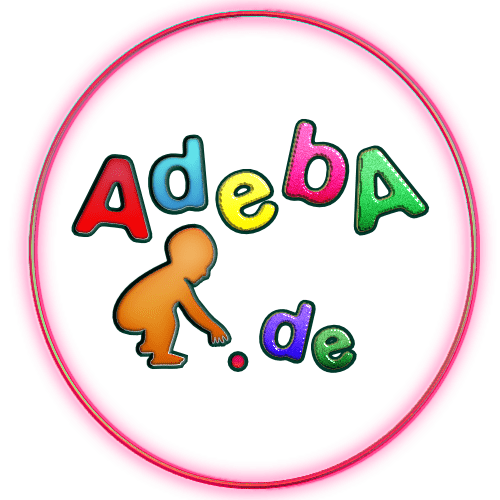Dyslexia is a specific reading disability. It’s a common problem in the United States, affecting approximately 6.5 percent of the population. Dyslexia isn’t something that you can simply “fix” with enough time and effort. Instead of focusing on overcoming dyslexia, it’s helpful to accept your situation as dyslexic and understand what your strengths are as an individual who experiences dyslexia. Dyslexia is characterized by difficulties with word pronunciation, spelling, or writing because of an inability to recognize letters and sounds, or patterns in those letters when reading text.
Most people with dyslexia have some degree of difficulty reading even though they may be able to read other materials such as newspapers or books on their own at an above-grade-level speed—that is, they can read independently rather than having someone read to them. The LRS Dyslexia program was created specifically for individuals who experience difficulty learning how to spell words correctly by practicing over and over again—like a muscle builder would use weights to strengthen his arms and hands.
Developed by Dr. Richard Gump of the Literacy Research Center at Wichita State University, this program teaches you detailed strategies for learning how to spell words correctly so you can overcome your reading challenges more quickly and easily than others have experienced in the past.
What is dyslexia in psychology?
Dyslexia was first identified by Dr. George Frederic Oster in 1891. He reported that a girl who could read words but had difficulty spelling them had an unusual brain development and thought it was caused by the girl’s father, an ophthalmologist, who was over-reading medical texts. Dyslexia has been recognized as a disability since then, and is now defined by the 5th or Americans with Disabilities Act of 1990. Dyslexia isn’t something you can simply „fix“ with enough time and effort. Instead of focusing on overcoming dyslexia, it’s helpful to accept your situation as dyslexic and understand what your strengths are as an individual who experiences dyslexia.
What are some of the causes of dyslexia?

Dyslexia is caused by many different things. Dr. Gump says that there are many possible causes for dyslexia, including a lack of opportunity to learn how to spell words correctly, family members who have the condition, genetics, and other learning difficulties such as ADHD or dyscalculia. This program would be beneficial for individuals with dyslexia who experience difficulty learning how to spell words correctly by practicing over and over again—like a muscle builder would use weights to strengthen his arms and hands. The LRS Dyslexia program was created specifically for this population in order to teach you detailed strategies for learning how to spell words correctly so you can overcome your reading challenges more quickly and easily than others have experienced in the past.
Are there tests that can tell if you have dyslexia?
Unfortunately, there is no single test for dyslexia. Instead, you need to take a number of different assessments that will help determine if you have dyslexia and the severity of your symptoms. The good news is that these assessments are free and they are available at many public libraries and online. If you suspect an individual has dyslexia, you should speak with them about learning strategies specific to their needs. In the meantime, it’s helpful to develop ways to cope with dyslexia so the person can work hard on developing literacy skills while they’re still young. Individuals with dyslexia typically find that they have mild difficulties reading in words or letters but do well when reading whole sentences and paragraphs together or when reading lists of numbers or dates or other information that features patterns. They also tend to excel in visual word recognition—that is, being able to recognize individual words without needing to identify letter sounds or spellings first. They may also be better at visual memory tasks such as remembering where things were in a room or what someone was wearing on a particular day from a photograph
Is dyslexia classed as a disability?
Some people who experience dyslexia see it as a disability. However, there isn’t an official classification for dyslexia like there is for other disabilities. Many individuals with dyslexia are able to compensate for their difficulty reading by using other senses, such as hearing and touch, to help them remember words they have already learned. Because of this, some people don’t think of dyslexia as a disability and instead focus on learning how to overcome the challenges that come with this condition. Others use the term „dyslexic“ to refer to someone who has trouble learning how to read but can still read all the same—even if they have some difficulties with spelling or pronunciation. This also applies to those who often sound like they’re reading in their head rather than aloud. For example, if you’re struggling with sounding out words, you might hear yourself saying sentences that sound exactly like when somebody reads them aloud—perhaps from trying too hard not to mispronounce words out loud.
What are the strengths and weaknesses of dyslexia?
One of the strengths of dyslexia is that many people with dyslexia are highly creative. They are often very good at art, music, writing, and other creative endeavors because they have a unique way of processing language. Dyslexic individuals might not be able to read as well as others but they are still able to write or draw beautifully. The weaknesses of dyslexia can include a lack of attention to detail and focus. This can lead people with dyslexia to make mistakes in their work or school—and even cause them to fail courses. Sometimes these mistakes are tough for an individual with dyslexia to recognize because they might not understand why they’re making mistakes. Some people with dyslexia find it difficult to get things done on time because there’s so much redirection and rewriting that needs to happen before their work is finished. There are many things you can do about your weaknesses if you’re affected by dyslexia: – Don’t worry about whether you’ll be successful in certain areas of your life if you have this disability–just focus on doing your best! – If you struggle with reading, try making sure that what you read is meaningful for you when possible–don’t just read for the sake of reading! – Try different methods of organizing your written work–perhaps using outlines or bullet points? – For a lot of aspects, repetition is key (meaning practice over and over again until it becomes easy
How is the diagnosis of dyslexia done?
A dyslexic diagnosis is made when someone’s developmental skills in reading, writing, or speaking are lower than what would be expected given their chronological age. That’s a tricky question because there isn’t one single way to diagnose dyslexia. It can be diagnosed through multiple different types of assessment methods and tests. In order to determine whether someone is experiencing dyslexia, a professional will typically perform an assessment including language and literacy in the areas of phonological awareness and word recognition. This information will provide a framework for additional testing if needed. The most common method for diagnosing dyslexia is through the use of standardized assessments like the Woodcock-Johnson Tests of Achievement (WJT) WJT was created by Drs. James and Elizabeth Johnson at Johns Hopkins University in Baltimore, Maryland in 1941. In 1942, they published a manual called the WJ Tests of Achievement which outlined how to administer the test without errors or problems related to administration or scoring—an important consideration we all want! The WJT has been revised numerous times over its lifetime and is still used today as one of the best ways to diagnose dyslexia throughout the United States as well as internationally.
How is the treatment of dyslexia done?
While dyslexia is not curable, it can be treated. The treatment of dyslexia typically includes three main components: – Remediation: a one-time process that provides instruction on how you can learn to spell words correctly and take steps to overcome your difficulties with reading and spelling – Tutoring: an ongoing process that continues until the goal of remediation has been achieved and your skills have improved significantly – Intervention: an ongoing process in which monitoring for future difficulty or relapse is done so the help needed can continue indefinitely LRS Dyslexia is the only program that combines these three methods into one comprehensive program.
Is there a cure or cure for dyslexia?
There is no cure for dyslexia. However, there are many things that can be done to help you manage your dyslexic challenges and improve your reading. One of the best ways to see improvement in your reading skills is with a little bit of practice each day. If you’re at an educational institution and not receiving direct services from a school-based teacher, try using online resources such as Khan Academy to supplement your learning. One thing that can be very helpful in managing dyslexic challenges is enlisting the aid of a professional tutor, who can help you learn strategies that work better for you.
What was the most recent research on dyslexia?
A recent study conducted by the National Institute of Health found that children with dyslexia who did not receive treatment often fell behind in school. The study also found that eight out of ten children with dyslexia have symptoms severe enough to impair their ability to learn. These same children may also experience behavioral problems, such as depression. The LRS Dyslexia program is a proven and effective way to overcome your reading challenges—it’s a program specifically designed for individuals who struggle learning how to spell words correctly. With this program, you can learn the most important strategies for spelling correctly and gain motivation from your progress.



